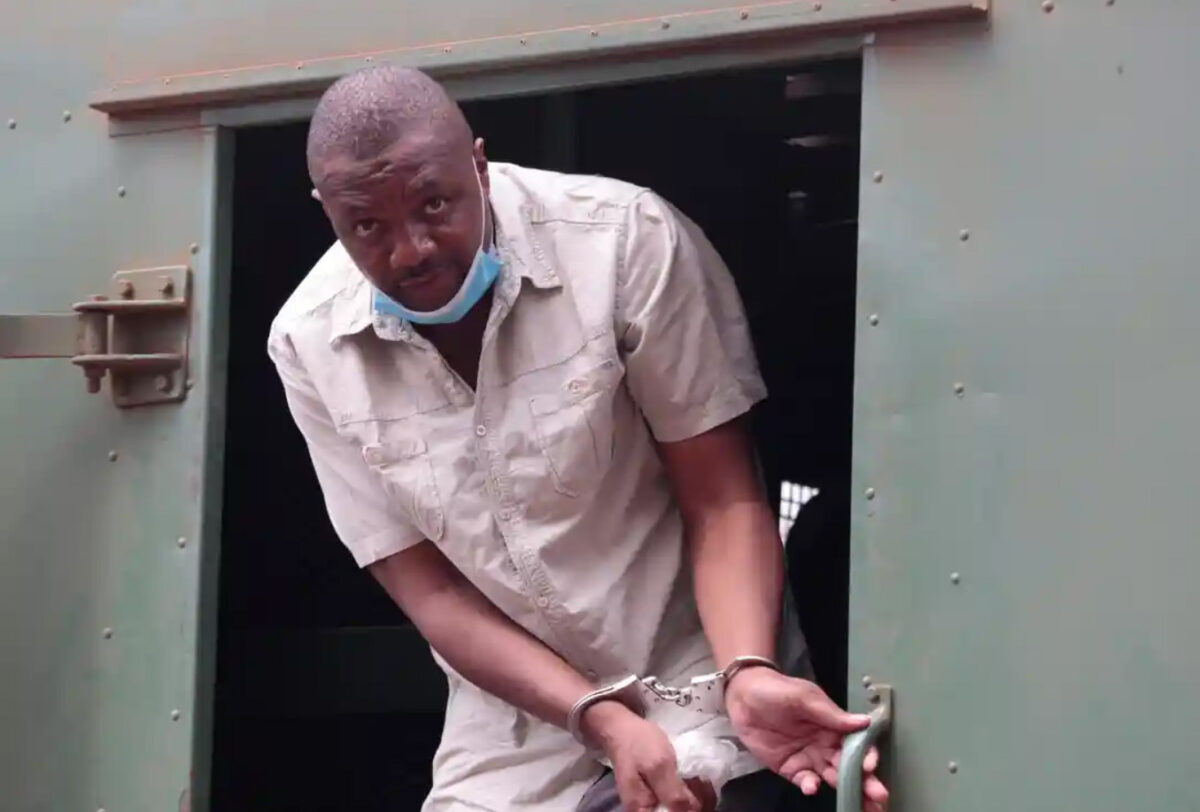HARARE – The High Court on Monday quashed charges of inciting violent anti-government protests levelled against journalist and government critic Hopewell Chin’ono, saying prosecutors failed to specify how a series of tweets constituted an offence.
Chin’ono, who has a large social media following, has been critical of President Emmerson Mnangagwa’s rule, accusing his government of corruption and mismanagement.
The 50-year-old was arrested in July last year and held for several weeks in prison for tweeting in support of planned anti-government protests later that month.
When his trial started before Harare magistrate Vongai Guwuriro-Muchuchuti, lawyers applied for the charges to be quashed saying they failed to disclose an offence.
The magistrate, while accepting that the charges were poorly drafted, maintained that “the particularity so demanded by the accused will be cured during the trial through the leading of evidence to no prejudice upon the accused.”
“If the court was satisfied that the charges were clear enough, it should have simply said so without appearing to prevaricate on the same point. In my view, the court clearly misdirected itself reaching this conclusion,” Justice Siyabona Paul Musithu ruled on appeal after Chin’ono challenged the magistrate’s ruling.
Justice Musithu said it was a vital requirement of the justice system that a charge must be framed in a way that does not leave an accused person guessing as to what offence they are alleged to have committed and how it was committed.
“The confusion which arises from the manner in which the charges were framed in casu is whether the applicant is expected to respond to the charges. The apparent contradiction between the charges and the state outline is quite telling,” the judge said.
“I agree with the counsel for Chin’ono that the contradiction in the charge sheet and the state outline leaves Chin’ono unsure about the offence he is alleged to have committed. Even if the charge sheet was to be read in isolation, still the failure to relate to or specify the exact words in the annexures it is alleged constituted an offence makes the charge inexpiable.
“I do not believe that this is the kind of specificity that is envisaged under section 146 (1) of the Criminal Procedure and Evidence Act. That sounds more like a fishing expedition on the part of the state. This anomaly afflicts the main charge and the alternative charges since they were all couched in similar fashion.”
In the circumstances, Justice Musithu ruled: “Muchuchuti’s ruling dismissing Chinóno’s exception to the charges is hereby set aside. The failure to allege or specify the exact words to the charge sheet which allegedly constituted an offence, as well as the evident contradiction between the charge sheet and the state outline vitiates the charge sheet and renders it a nullity.”
The state had alleged that Chinóno tweeted messages that were intended to disturb peace and security in the country. It was alleged that during a period extending from May to July he tweeted messages calling for the “illegal removal of the ruling party, Zanu PF.”
In April this year, the High Court again quashed a second charge against Chin’ono after he was arrested in January accused of communicating false information. The court said the law used by police to arrest him no longer existed.
















